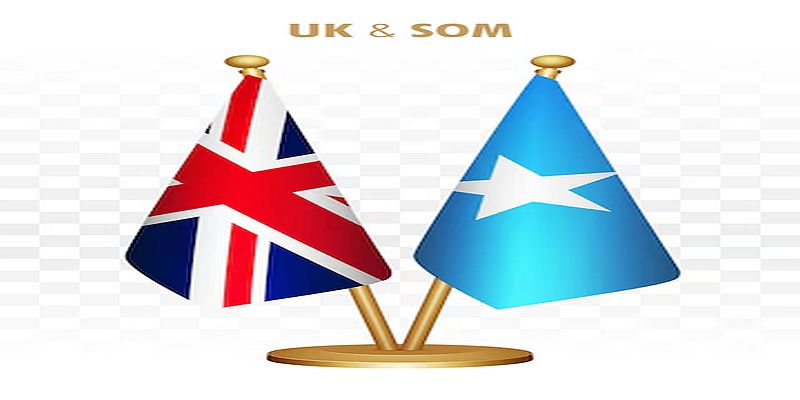Strengthening Somali-UK Trade Ties

The Somali-UK trade relationship is paradoxical. Despite the UK housing one of the largest Somali diasporas globally, trade between the two countries remains surprisingly minimal. The latest figures underscore this, with total trade in goods and services between the UK and Somalia amounting to a mere £49 million in the four quarters to the end of Q1 2024. This represents a significant 32.9% decrease from the previous year, indicating a troubling trend.
To put this into perspective, Somalia ranks as the UK's joint 171st largest trading partner, accounting for less than 0.1% of total UK trade. The numbers are not encouraging, especially considering the significant Somali population in the UK.
Let's break down these figures further. UK exports to Somalia totalled £46 million over the same period, which marks a 30.3% decrease compared to the previous year. Of these exports, £12 million were goods, while the remaining £34 million were services. Both sectors saw a drop, with goods exports falling by 14.3% and services by 34.6%. On the other side of the equation, UK imports from Somalia were almost negligible, standing at just £3 million, a decrease of 57.1%.
Given these numbers, it's clear that the trade balance heavily favours the UK. However, this is not necessarily a positive indicator, as the limited nature of imports from Somalia highlights the lack of diversity and depth in the trade relationship. While small, Somalia's exports to the UK could be expanded, especially in areas like agriculture, where the country has a comparative advantage.
The Somali diaspora in the UK, one of the largest outside Somalia, plays a critical role in the UK's economy. They contribute significantly in sectors such as healthcare, retail, and entrepreneurship. However, this contribution has not translated into stronger bilateral trade ties, which is surprising given the strong cultural and familial links between the two countries.
So, why is trade between the UK and Somalia so limited? There are several factors at play. First, Somalia's economy, though recovering, is still fragile and heavily reliant on remittances from the diaspora, which support basic needs rather than driving significant trade or investment. The country's infrastructure is underdeveloped, making it challenging to export goods at scale.
Second, Somalia's governance and political stability must improve to attract UK investment. Somalia's lack of a robust legal and regulatory framework also poses risks for UK businesses looking to enter the market. Moreover, UK businesses have limited awareness of the opportunities in Somalia.
Despite these challenges, there is potential for growth in Somali-UK trade. One area of opportunity lies in the services sector, particularly in education, healthcare, and financial services. The UK could export more expertise to support Somalia's development while benefiting from increased trade.
Another potential area for growth is the export of Somali goods to the UK. With proper support, products such as agricultural goods could be exported to the UK market. This would require targeted efforts to improve the quality and marketability of Somali products and better trade facilitation between the two countries.
In conclusion, while the current trade figures between the UK and Somalia are far from encouraging, the untapped potential could be harnessed with the right strategies. Strengthening this trade relationship would benefit both economies and reinforce the strong ties between the UK and its Somali community. It's time for both countries to explore new avenues for collaboration and make the most of the existing opportunities.
By Mohamed Mukhtar Ibrahim
Former Somalia's Minister of Petroleum and Minerals. He can be reached by email at: mohamed323@hotmail.com
